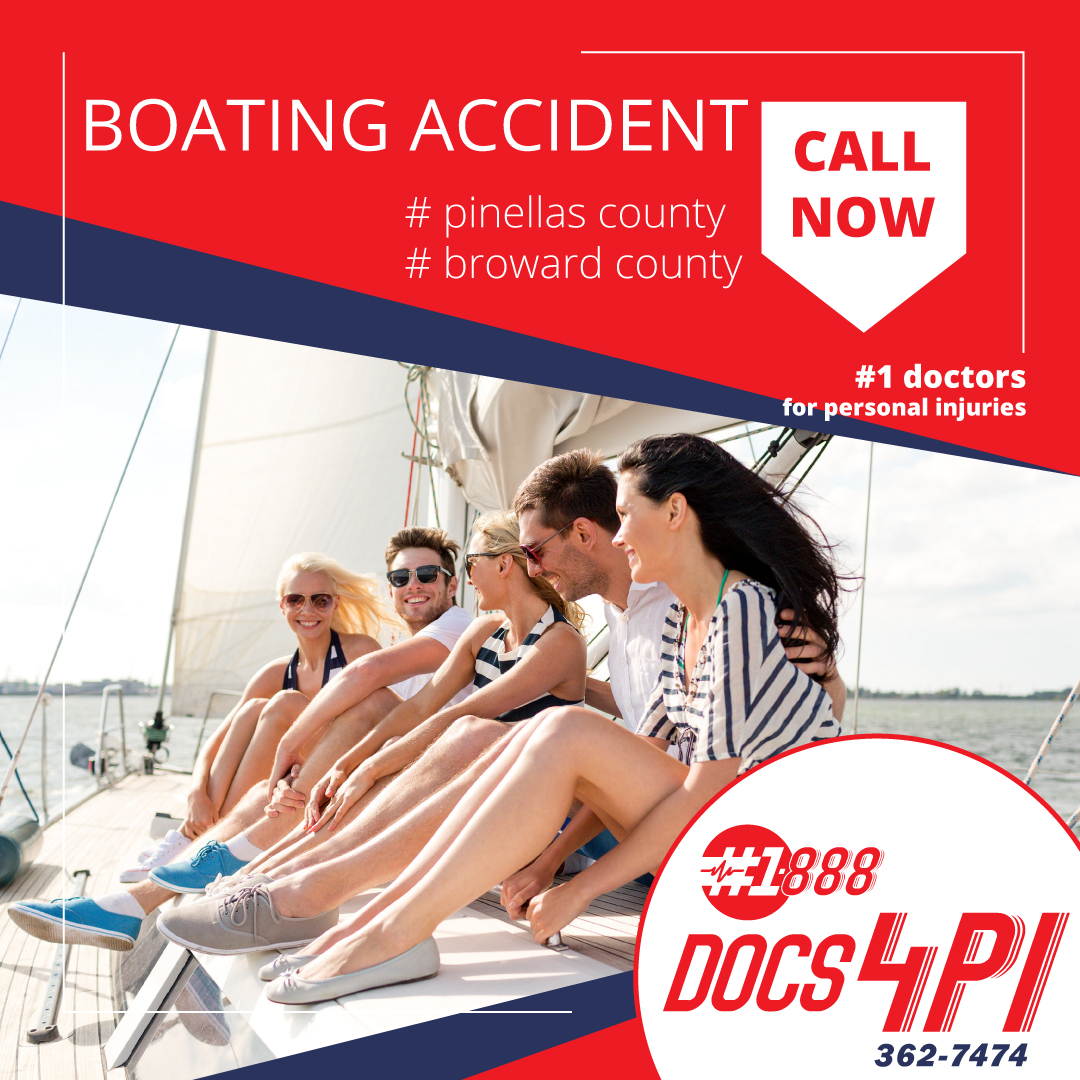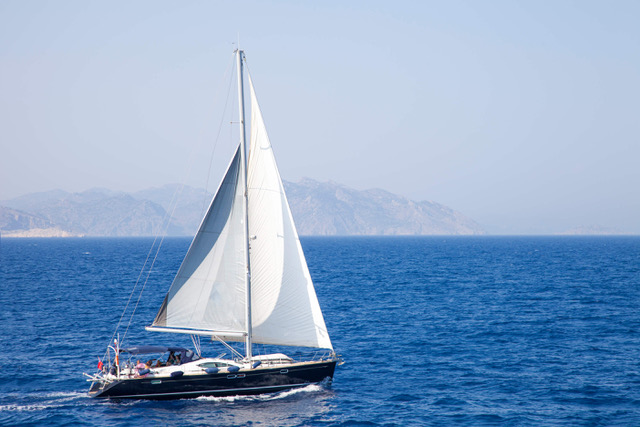
In the state of Florida, there are upwards of one million boats registered, and with that many boats, accidents are bound to happen. Boating accidents, as the name suggests, are accidents that happen on or with a boat. There is a wide variety of accidents and vessels that fall under this umbrella, from sailboats to speedboats, personal watercraft (jet skis), and even hovercraft. A common type of accident occurs when a boat collides with another vessel or strikes an obstacle, such as a reef or a dock. In the event of a wreck occurring on a lake or river, local and state laws are likely to apply. Boating accidents that occur at sea, however, fall under maritime law. Federal law in this area is highly complex. This is because the coastal waters are part of the United States as a whole, not of individual states.
The boat operator has a responsibility to provide you with the necessary medical assistance in the event of a Florida boating accident. Additionally, boat operators need to provide their name, address, and vessel identification to any injured victims or anyone who sustained property damage. It is illegal for boat operators to leave the scene without contacting the police chief, county sheriff, or the Florida Fish and Wildlife Conservation Commission (FWC). If a boating accident meets certain criteria, it must be reported to the Coast Guard. These criteria include:
A report must meet at least one of these requirements. If you've been injured in a boating accident, call 1-888-DOCS4PI to get evaluated. Several of our physicians have strong relationships with some of the best attorneys. Your doctor will be able to work with your chosen attorney to document all medical information to help your claim. Continue reading to learn crucial information about boating accidents and what to consider when filing a claim.
When an injury occurs in a boating accident, an operator, passenger, or anyone near the water may file a lawsuit. Among the types of boats or people who could be involved in a boat accident are:
You may have grounds to file a boating accident claim or lawsuit if you were injured in an accident involving a boat or other water vessel.
If you are involved in a boating accident, here are some steps you must take:
When an accident occurs, it is important to notify the Florida Coast Guard as soon as possible. It is often the case that injured parties suffer serious injuries, sometimes fatal injuries, and time is of the essence. Paramedics usually arrive after the first responders, but they could be anyone from public safety agencies, depending on the situation. The main problem with boating accidents is that they frequently occur in remote areas, making accessing the scene difficult. People who may have witnessed the accident or happened upon it after it happened are often the only ones capable of calling. Regardless of the situation, the emergency response should be called as soon as possible.
After an accident occurs, everyone involved should seek immediate medical attention, regardless of whether authorities or medical professionals are able to reach the scene. People often sustain internal injuries in boating accidents because they are not wearing any kind of restraint device. In addition to testing for deeper injuries, medical professionals should check out superficial wounds to determine if further treatment is necessary. A minor accident may not seem dangerous, and those involved may not believe their injuries are serious enough to require medical attention. Even when injuries are minor, the amount of damages recoverable is directly tied to the results of all medical evaluations. In addition, some injuries recur later in life, and in many situations, insurers are liable for continued medical treatment. No matter how minor the injury is, report it to the doctor.

Documentation is crucial to proving injury and accident claims. Photographing the accident scene is an effective way of revealing what may have transpired during the accident, including the surrounding environment and narrow boat lanes. Most boats stay clear of other traffic on the water and stay a considerable distance from other boats, but even being followed by a larger boat can create a dangerous situation. Any evidence that can be used as evidence of negligence on the part of the other boat operator should be photographed. Injury photos and the state of the water can be important as well, especially when the experts examine the accident to determine a cause. As far as documentation goes, there is no such thing as too much since there are a number of factors that come into play.
It is important to maintain all pictures and medical bills from the accident scene in a safe place so they will be readily accessible for any future adjudication of the case. Similar to car accidents, comparative negligence can play a role in boating incidents as well. Boating accidents can sometimes be more dangerous because of the higher level of negligence involved. With increased speed on turbulent waterways, it is easy to lose control of a boat. Furthermore, evidence can often be completely lost or damaged in a boat accident case, often due to waterlogging or being damaged beyond detection.
The following actions may constitute negligence on the part of a boat operator:
In the same way as in a car accident lawsuit, if a boater acted negligently and caused you injury, you are entitled to damages. In addition to your medical bills, you may be entitled to compensation for pain and suffering, lost earnings, and lost earning capacity.
A boat operator who is under the influence of drugs or alcohol is prohibited from operating a boat in Florida. A person suspected of operating a boat under the influence must submit to sobriety tests. If the operator refuses to submit to the test, his boating and driving privileges will be revoked. The law considers someone intoxicated if they are at or above .08% in blood or breath. Underage drinkers who have a blood alcohol content of .02 or more are considered intoxicated. Those who test over the permitted limit of blood alcohol content may be fined, jailed, or placed on probation.
In Florida as well as in federal law, a person who operates a vessel recklessly will be charged with a first-degree criminal misdemeanor if they show "willful disregard for the safety of persons or property." The operator of a boat must operate their vessel in a reasonable and prudent manner while considering other vessel traffic, posted restrictions, divers-down flags, and other factors, in order to maintain the safety of the other boaters, guests, and property. The careless operation may result in a citation if these regulations are not followed. If the offender receives multiple citations, he or she will be required to complete a boating education course.
Due to the exposed nature of the rider, injuries sustained during jet ski accidents can be much more severe than those sustained during boating accidents. In rare cases, defective equipment can contribute to jet ski accidents, as well as negligence on the part of the operator. Those liable for damages may include negligent vessel operators, jet ski rental companies that provided the equipment, or manufacturers who sold a defective or poorly designed product.
In order to prove liability for your injuries, you must demonstrate that negligence on the part of the defendant caused those injuries. The legal term for this is causation. Your case must prove, for example, that a boat operator acted recklessly and caused your injuries as a result. Last but not least, you must establish that you incurred damages as a consequence of the boating accident. You may establish, for instance, that you sustained physical injuries, medical expenses, and emotional distress as a result of the accident. Experienced boating accident attorneys in Florida can help you prove all of these elements with evidence.
Get treatment for your injuries after a boating accident by calling 1-888-DOCS4PI to get assessed and to begin your recovery. In the event that you require legal representation, our physicians work with the best legal counsel in their areas.
If you feel you were injured in an auto accident or another accident, #1-888-DOCS4PI can put you in touch with people who can provide sound help. Our service to find qualified assistance you need is a quick three-step process.
2
Upon calling #1-888-DOCS4PI, our intake coordinator will ask you a series of basic questions about your issue and the injuries you suffered as a result. This information will help us match you up with someone who has the background that fits your situation.
3
Once we have your contact information and understand what you require, we will connect you with someone who can help you with your accident or injury. It is that easy. Simplify the process by calling #1-888-DOCS4PI and using our free 24/7 helpline.